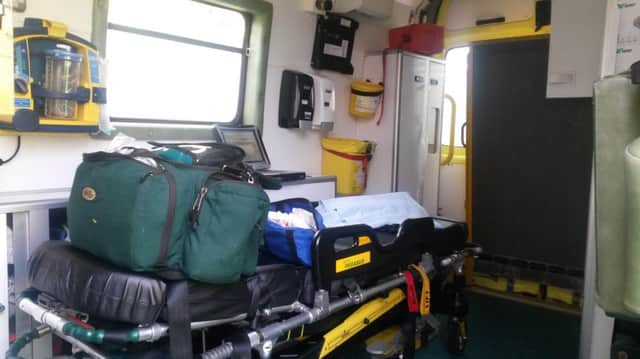Ambulance service for Northamptonshire improves but misses life-threatening emergency targets


EMAS’ performance figures for 2014/2015 show the service is now reaching more 999 calls within the eight minute target time than in previous years.
But the new stats show it still missed targets for life threatening calls.
Advertisement
Hide AdAdvertisement
Hide AdIt got to patients needing a defibrillator within eight minutes 71.61 per cent of the time when the target is 75 per cent.
And for life threatening call-outs not needing a defibrillator, medics arrived in under eight minutes 70.2 per cent of the time.
However, progress has been made and, significantly, against a backdrop of huge increases in emergency calls, with about 200 extra calls each day over December and January.
Overall, calls went up five per cent.
Thanking her staff for their tireless efforts, Sue Noyes, who took over as EMAS chief executive in October 2013, said: “I am very proud of the excellent work of our staff, volunteers and our partners, it’s clear we are an improving service and our performance results are proof of the progress made.
Advertisement
Hide AdAdvertisement
Hide Ad“Whilst frontline staff deal with 999 calls day in and day out and know how important it is to arrive as fast as possible, they’re always reminding us that the quality of clinical care they provide is as important as how quickly they arrive.”
The overall statistics hide several pleasing areas.
During 2014/15, EMAS was one of the top performing ambulance services for responding to a type of heart attack caused by a prolonged blockage of blood supply to the heart.
Medics provided high quality clinical care at the scene and then ensured the majority of patients arrived at a specialist cardiac unit within 150 minutes of the initial 999 call.
Mrs Noyes said: “This is just one example of how the clinical skills of our staff save lives.
Advertisement
Hide AdAdvertisement
Hide Ad“They’re all dedicated, highly trained and experienced practitioners, even though on some occasions, they’re not able to arrive within the eight-minute target time due to challenges such as the distance they have to travel, traffic jams and bad weather.
“Despite these challenges, we’re now only seconds away from achieving the time standards. If the target arrival time was eight minutes and 30 seconds, we would have hit the standard in 2014/2015.”
EMAS is recruiting and training 200 more frontline staff and investing £3.9 million in its fleet to help it hit targets in future.
Mrs Noyes added: “I’m confident EMAS will continue to move in the right direction.
“Thank you to our staff and volunteers for their continued support and for providing the best possible care to our patients across the East Midlands.”